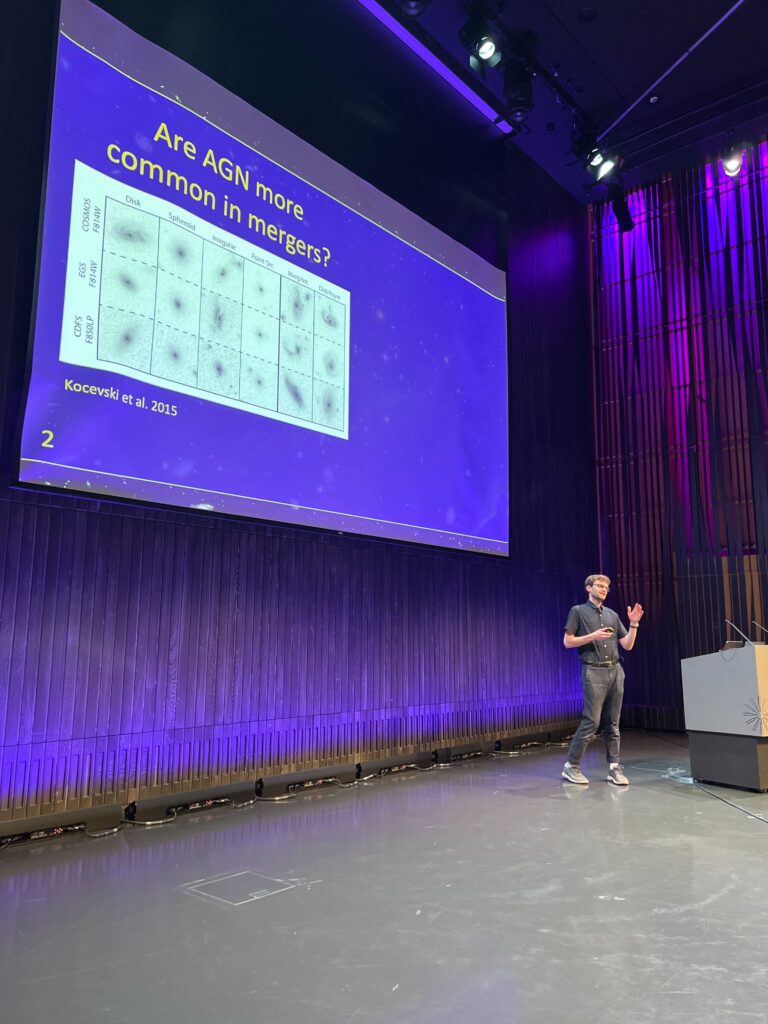Several members of the Astro-Obs group at Newcastle University flew to Iceland to attend the conference ‘What Drives the Growth of Black Holes? A Decade of Reflection’ at the end of September. This week-long specialist conference was held in the beautiful Harpa Centre in Reykjavik. Researchers there aimed to address fundamental questions around active galactic nuclei (AGN) and their black holes, such as:
- How does gas accrete onto black holes from the kpc to sub-pc scales?
- How do the properties of host galaxies and the larger scale environment affect black hole growth?
- What fuels the rapid growth of the oldest and most massive black holes?
- What impact do AGN winds, outflows, and jets have on fuelling the black hole and star formation in the galaxy?

During the week, our group members not only attended, but played a key role in the events taking place. Second year PhD student Sean Dougherty gave a talk on his work in finding enhanced AGN activity in high-redshift galaxy mergers. Final-year PhD student Aishwarya Girdhar presented her work on the impact of multi-phase outflows and low power radio jets on the host galaxies of quasars.
Our new postdoctoral researcher, Dr Vicky Fawcett, spoke on the fundamental differences between red and blue quasars. Dr Tiago Costa, who will be joining us as a NUAcT fellow in August, also gave an excellent overview talk.
Finally, Dr Chris Harrison rounded out the week by leading a discussion on the progress made in understanding AGN feedback over the past decade.
Previously, the event had been cancelled due to the eruption of the Eyjafjallajökull volcano in 2010 and then when the next decade came round in 2020, the covid pandemic once again prevented these researchers from meeting. But finally in 2022 it was worth the wait, and the Newcastle Astro-Obs group were able to attend with an even bigger contingent than would have been present in 2020!
